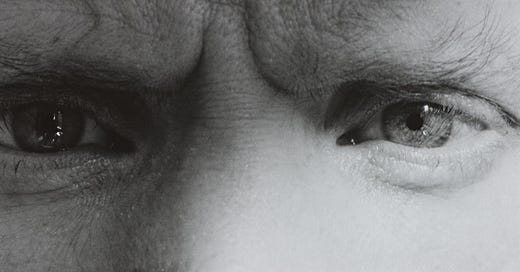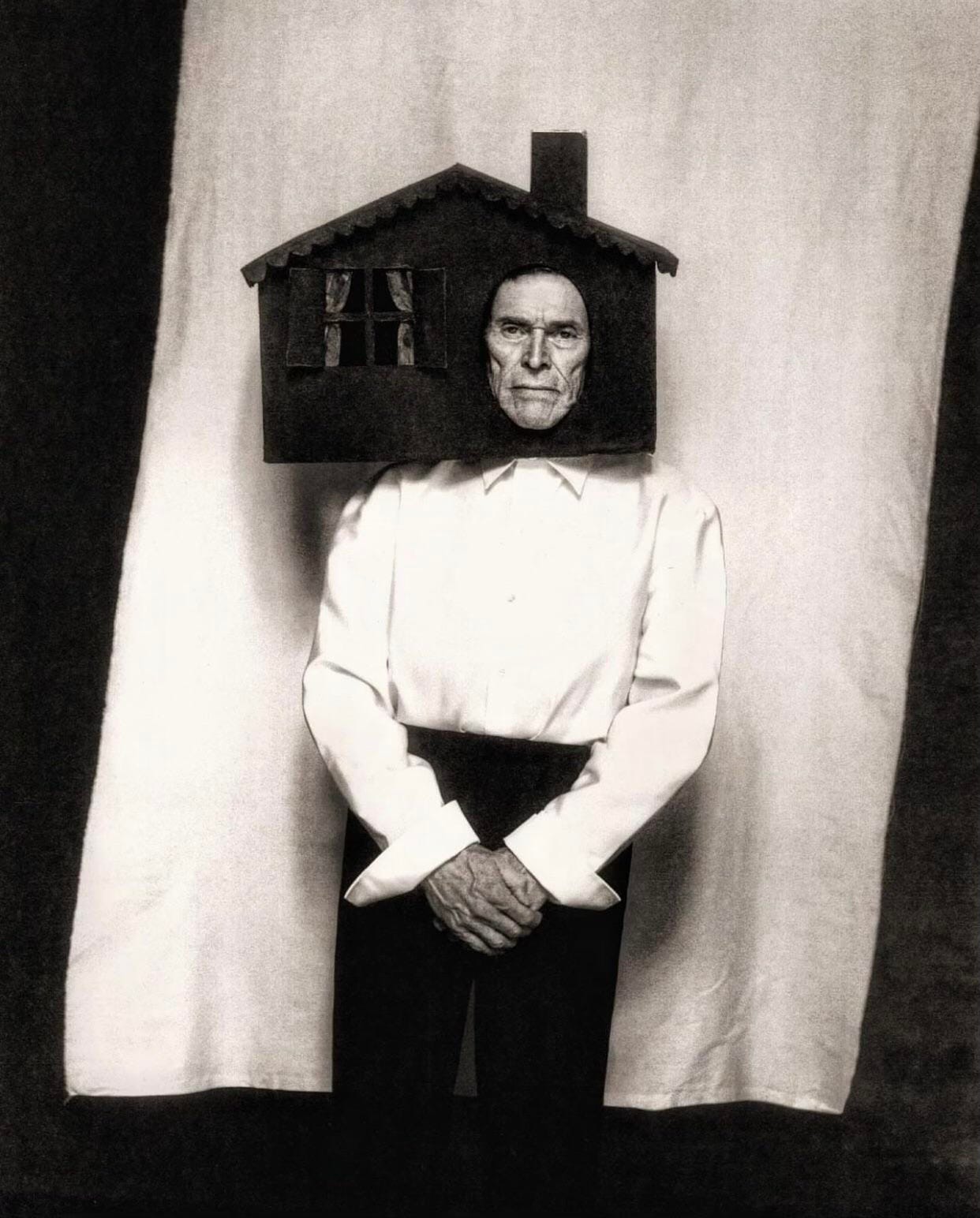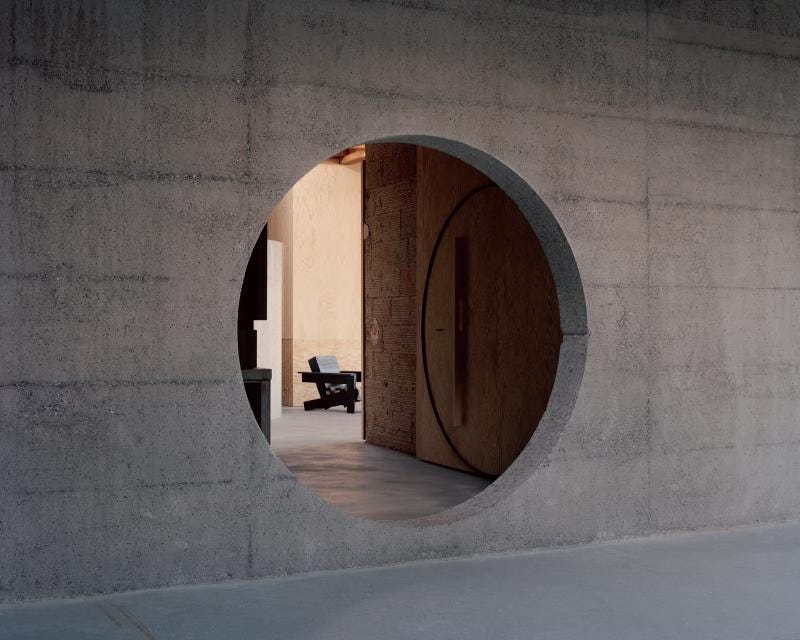Hello and welcome. Make yourself comfortable. I have no clue why I’m doing this, but I feel like starting a Substack. Why Partly Cloudy? Because I’m a moody, tad dramatic girl. Writing used to mean something to me. The keyboard on my laptop used to be an instrument I played. As I wrote, I discovered new worlds within and without me. I opened my heart wide and exercised vulnerability. I organised my thoughts and let go of things I no longer needed. I gained clarity. And it was all at my disposal 24/7 and free of charge. At some point in life though, I lost my way with words. Someone told me I couldn’t write, and I took it at face value. To hell with it, it’s time for another chapter.
If I’m honest, I’m feeling rather lost right now. Discombobulated. Out to sea with no shore in sight. I’ve been living out of a suitcase (or two) since December. Eight months. That's a first for me. In December, Australia called and I flew on a work assignment to Sydney for a few months. When that was finished, coincidentally, I decided to exit my career in fashion and enter a different one, while also taking a well-deserved break in between. So I resigned from my job, put all my belongings in a storage unit and travelled to Moscow, my hometown. To spend the European summer but mostly, of course, to spend time with my family who I hadn't seen in over six years. I figured it was time to visit to come to terms with my roots, to reconnect with family and to stop running from myself and the ghosts of the past.
I was twenty-two when I moved to Aotearoa New Zealand, fresh out of university. Unconsciously, I wanted to move as far away as I possibly could. To make my own choices, to pave my own road. And in a way I did, but in an attempt to assimilate, I neglected who I was and where I came from. Over the past ten years, I often felt like a rootless tree, lacking the foundation to withstand strong winds and tribulations. For a while there was no place where I felt a sense of belonging. I didn’t feel it in Aotearoa New Zealand, nor in Russia. I was internally homeless. But, to quote one of my favourite books Women Who Run with the Wolves: Myths and Stories of the Wild Woman Archetype by Clarissa Pinkola Estés, within the soul is the homing device. I’ve been finding my way home one step at a time for a while now. I guess this year is clearly showing me that home is not an external destination but an internal one.
She writes, “When we are young and our soul-lives collide with the desires and requirements of culture and the world, indeed we feel stranded far from home. However, as adults we continue to drive ourselves even farther from home as a result of our choices about who, what, where, and for how long. If we were never taught to return to the soul-home in childhood, we repeat the “theft and wandering around lost” pattern ad infinitum. But, even when it is our own dismal choices that have blown us off course — too far from what we need — hold faith, for within the soul is the homing device. We all can find our way back.”
I recently watched Young Woman and the Sea, a biographical film about competitive swimmer Trudy Ederle, the first woman to swim across the English Channel (roughly a 21-mile crossing). When Trudy had only five miles left to swim, the tide brought her to the shallows. It was, well, too shallow for her tugboat to cross. Having no boat to guide her and no light to see across the vast, endless ocean at night, Trudy was left all alone to finish the crossing. And when she eventually lost her way, unable to tell which way the land was, the public awaiting Trudy’s arrival from France on the coast of England started bonfires to help her see the shore. It saved her, they saved her. Metaphorically speaking, I’m in the shallows now. I feel it. Earlier this year, I transitioned from fashion to acting. When the hobby of going to weekly acting classes to face my fears began to morph into a persistent feeling, sort of an urge to do it for real, I was in agony. Never have I thought I could be an actress one day. The thought felt so bizarre, so out there that attempting to become an astronaut at 32 seemed like an equally crazy idea. Something in me felt ashamed of wanting to be seen that way. Me? An actress? Am I mad? So much conditioning, so little confidence in myself. An actress is supposed to start young. An actress is supposed to be beautiful. The camera must love her. She must be fit, tall and sexy. As if we don’t get to see a cast of diverse actors in the majority of productions these days (although we still have a way to go).
A part of me felt so unworthy of claiming the actor title that I had to battle just to say it’s what I want out loud. As I peeled layers of conditioning and limiting beliefs one at a time, I cried and purged a lot. Everything I’ve been avoidant of dealing with started to come up to the surface just as things do in boiling water. The camera sees everything. It saw how I struggled with eye contact. How I couldn’t hold tension and shied away from conflict. The camera instantly recognised how I hide behind my smile when I feel anger or pain, my coping mechanism for many years.
For some time, I felt like I was living a double life: full-time fashion girlie by day, an actress by night and on weekends. I approached this turn tenderly but steadfastly. And it was indeed a bumpy, windy road. Just as it goes in the Japanese proverb, fast is slow, but continuously, without interruptions. At first, I told my therapist that acting might be for me. When I figured the world didn’t explode from my confession, I branched out to my group therapy by sharing with the girls that, actually, I want to be an actress now. The group supported me and I didn’t die of shame, surprisingly so. Slowly, I expanded my safe circle to close friends and family and let them into my newly discovered, a bit scary but exciting world. Until, finally, one day I felt brave enough to share an acting self-tape on Instagram.
In one of my favourite books The Great Work of Your Life: A Guide for the Journey to Your True Calling by Stephen Cope, he says: “A life is built on a series of small course corrections — small choices that add up to something mammoth.” I couldn’t agree more, what could’ve seemed like a series of baby steps, was indeed colossal work stretched across four months. A reconstruction on a deep level. I wore myself out by spending all weekends and evenings in acting classes and workshops, reading scripts and memorising lines, all while maintaining a full-time job. When I resigned and thereupon came to Moscow, I crashed hard. For three weeks I could hardly leave bed. I was so burned out. It’s been nearly three months since I came to Moscow and I’m still a chronically tired girl. I nap whenever I can, get hugs from friends and family, go to daily horse riding practice and attend select acting workshops from time to time. That’s all I’m asking of myself right now.
When a caterpillar transforms into a butterfly, it undergoes metamorphosis. To borrow some words from a scientific magazine, “First, the caterpillar digests itself, releasing enzymes to dissolve all of its tissues. If you were to cut open a cocoon or chrysalis at just the right time, caterpillar soup would ooze out. But the contents of the chrysalis are not entirely an amorphous mess. Highly organised groups of cells survive the digestive process. Before hatching, it grows an imaginal disc for each of the adult body parts it will need as a mature butterfly.”
Right now, I'm a caterpillar soup that’s only becoming. Becoming something unfamiliar, something other than what I know. What kind of butterfly might I be? Or maybe even a moth? This time in my life truly feels like a liminal space. A space between the lines. My therapist calls it a holding pattern. And I’m restless but waiting. Somewhat patiently, which is not my strong suit. I’m trying hard to let myself stay in this empty space, release the grip, surrender to the process and not poke the chrysalis before it's time. Save the soup for later. Using Trudy Ederle’s story as an exemplum of my own journey (metaphors soothe me), I left one coast behind when I flew to Sydney and applied myself to acting. Nonetheless, I'm yet to cross the channel and, painfully so, an acting career still feels like a big, fat pipe dream most of the time. Somehow, no matter how close I am, the last stretch feels the most challenging. I guess weaving words into sentences could be my way of leading myself ashore.
I have a note on my phone with various questions I have no answers to yet. What comes next? When’s the right time to return to Aotearoa New Zealand? How do I build a career in this completely new industry for me? Will I make it? Do I have what it takes? Should I go to drama school or wing it as I go? What’s stopping me from moving forward? Why do I feel so stuck? And so on… It’s a checklist, which I’m hoping to eventually tick off, as time goes by and I find the answers within myself. Here’s a poem that’s been resonating hard with me lately, I came across it through an interview with David Whyte.
Lost by David Wagoner
Stand still. The trees ahead and bushes beside you
Are not lost. Wherever you are is called here,
And you must treat it as a powerful stranger,
Must ask permission to know it and be known.
The forest breathes. Listen. It answers,
I have made this place around you.
If you leave it, you may come back again, saying here.
No two trees are the same to raven.
No two branches are the same to wren.
If what a tree or a bush does is lost on you,
You are surely lost. Stand still. The forest knows
Where you are. You must let it find you.
Breathe, Rina, breathe. There’s a part of me that’s terrified of eventually moving on from acting because, until this point, nothing I tried felt so damn good and right. There’s also grief that comes with the thought of why haven’t I figured this out sooner. Oh all this 'lost' time. Thomas Merton once wrote: “Every man has a vocation to be someone: but he must understand clearly that in order to fulfil this vocation he can only be one person: himself.” That’s what I’m trying to remind myself as my main agenda.
To hell, there’s another part of me, possibly a very young one, that’s terrified of moving on — she wants to throw her hands in the air at the first sign of potential failure or lack of external validation. The adult in me is holding on for dear life. Poet Robert Frost described his own process of making poetry as a kind of homecoming to a lost part of himself. “For me,” he said, “the initial delight is in the surprise of remembering something I didn’t know I knew.” In a new poem, he wrote, he “meets himself coming home.” In a way, that’s how I feel when I’m acting.
It’s a homecoming.








